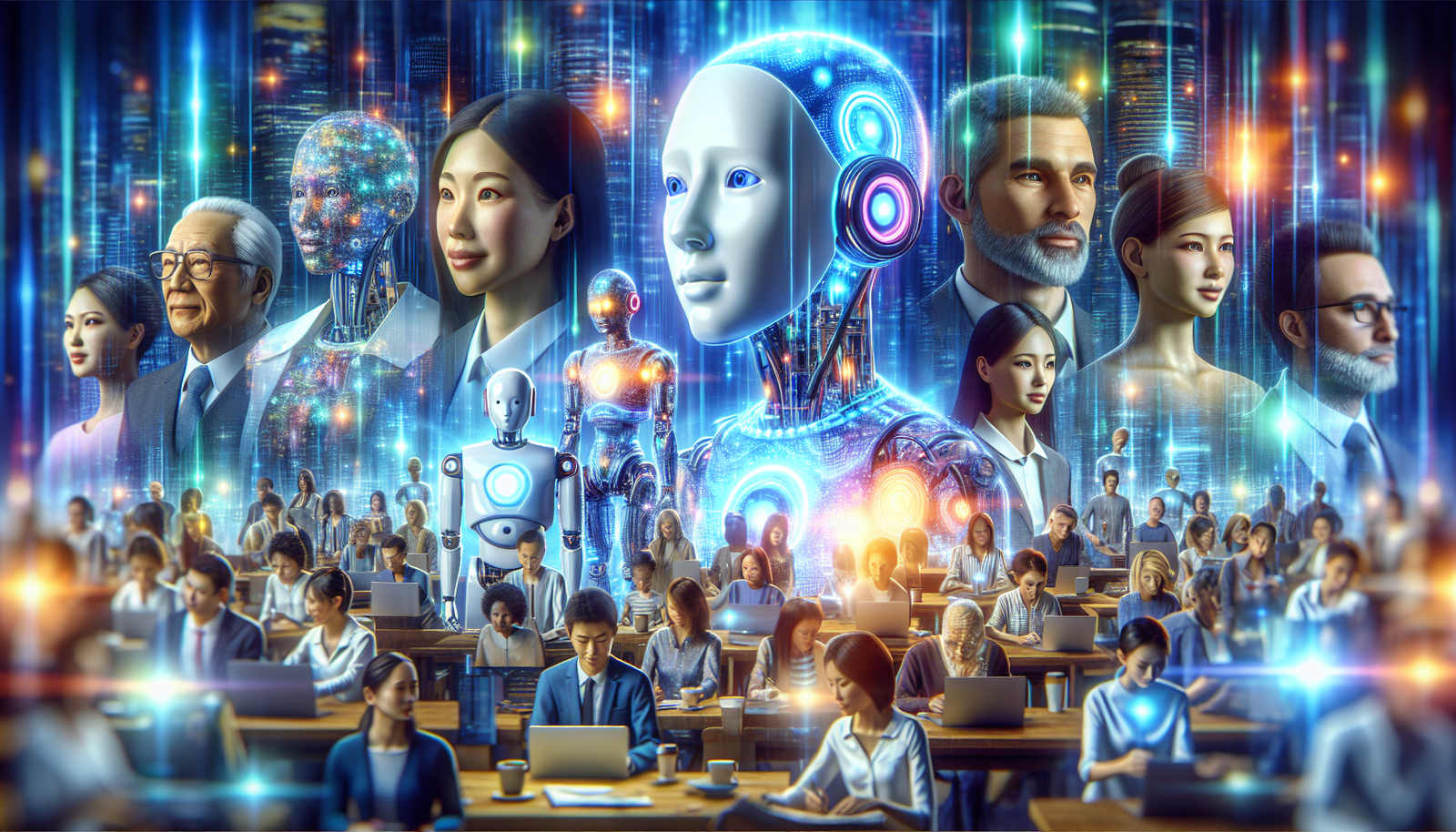Artificial Intelligence (AI) is becoming a radical transformation lever in various spheres of human existence. _Goal-oriented models embody the future of AI._ These systems focus on specific applications, fostering efficiency and customization. Human integration _allows for the union of expertise and innovation._ The interactions between humans and artificial intelligences are being redefined to offer relevant solutions. Anticipating the evolutions of AI in 2025 means understanding a world where technology transcends its traditional limits. _Ethics and security are becoming essential in this landscape._
Artificial Intelligence in 2025: Goal-oriented Models
Experts predict that by 2025, artificial intelligence (AI) models will evolve toward more precise and personalized applications. The focus will be on creating smaller models oriented toward specific goals, allowing for a modularity similar to that of microservices in software development. This transformation will promote better operational efficiency and tailored solutions to the specific needs of users.
Opening Up to Open Source
Predictions for 2025 anticipate a growing adoption of open-source AI models within companies. This trend arises from a desire to reduce costs associated with proprietary systems, which are often unprofitable. With the rise of open-source solutions, customization and transparency will improve, facilitating their implementation in multi-cloud environments.
Integration of Human Expertise
The synergy between humans and AI will be essential to the future of artificial intelligence systems. Experts discuss a major advancement: teaching AIs not only the techniques to perform tasks but also how to approach problems in a reasoned manner. This human integration could become a key success factor, especially in competitive sectors such as finance and healthcare.
A User-Centered Approach
Understanding human behavior in interaction with AI systems is about to become a strategic focus. In 2025, experts will pay attention to algorithmic bias, resulting from the interaction between AI and the user. Innovative solutions, such as “pause moments” for human supervision, will emerge, promoting a necessary balance between automation and control.
The Challenges of Digital Trust
The rise of generative AI technologies brings concerns regarding the authenticity of information. The use of robust digital certificates to validate the authenticity of content will become essential. Advances in this area will help mitigate the crisis of trust caused by the proliferation of deepfakes and other digital manipulations.
Sustainability and AI
Sustainable development goals will materialize with the use of AI tools capable of effectively managing environmental issues. Companies will leverage intelligent technologies to optimize their energy consumption while supporting ecological and responsible initiatives. The importance of AI for economic profitability will translate into innovative environmental solutions.
Transformation of Data Infrastructures
The merging of AI with unified data infrastructures will be essential. AI systems will require solid databases to ensure their efficiency and reliability. This data consolidation will guarantee smooth integration and optimal accessibility of information, thus creating an environment conducive to the emergence of agentic AI.
A Regulated and Ethical Future
The regulatory landscape surrounding AI will become more structured in 2025. Companies will need to comply with increasing ethical requirements regarding data processing. This evolution will aim to balance technological innovation and the protection of individual rights, creating a safer framework for the responsible use of AI.
Intensified discussions surrounding the ethical and security issues of artificial intelligence systems will reflect a growing collective awareness. The challenge will be to forge tools that combine technological advances with respect for human values.
Frequently Asked Questions About Artificial Intelligence in 2025
What will be the main changes in AI models in 2025 compared to today?
In 2025, AI models are expected to evolve into smaller systems oriented toward specific goals, prioritizing practical applications over mere parameter size.
How will human integration be improved in AI systems by 2025?
AI systems in 2025 will aim to better integrate human expertise by learning not only to execute tasks but also to understand reasoning processes, thus strengthening human-machine collaboration.
Why will open-source AI models gain importance in 2025?
Open-source AI models are anticipated for their ability to reduce licensing costs and offer greater transparency and customization, making AI accessible to a broader range of companies.
Which industries will benefit the most from AI in 2025?
Sectors such as healthcare, finance, and industry will see substantial transformations due to AI, particularly through operational optimization and improved data-driven decision-making.
What ethical challenges will AI need to overcome by 2025?
The issues of algorithmic bias, system transparency, and data privacy management will represent critical challenges that AI developers will need to address.
How will AI contribute to sustainability goals by 2025?
AI systems will play a crucial role in managing natural resources, optimizing energy consumption, and monitoring environmental performance to help companies achieve their sustainability goals.
Which emerging technologies will influence AI development by 2025?
Technologies such as advanced machine learning, unified data systems, and generative AI will influence how AI is integrated into various industrial processes, effectively transforming workflows.
What is agentic AI, and why is it important in 2025?
Agentic AI refers to AI systems capable of making autonomous and creative decisions, which could transform traditional business practices and enhance operational efficiency.
How can companies measure the effectiveness of their AI initiatives in 2025?
Companies will need to establish clear, measurable performance indicators to assess the return on investment of their AI initiatives, focusing on real outcomes rather than just initial investments.
What role will AI personal assistants play in our daily lives in 2025?
AI personal assistants are expected to become more integrated into our routines, capable of organizing tasks and providing personalized recommendations while improving our productivity and time management.






